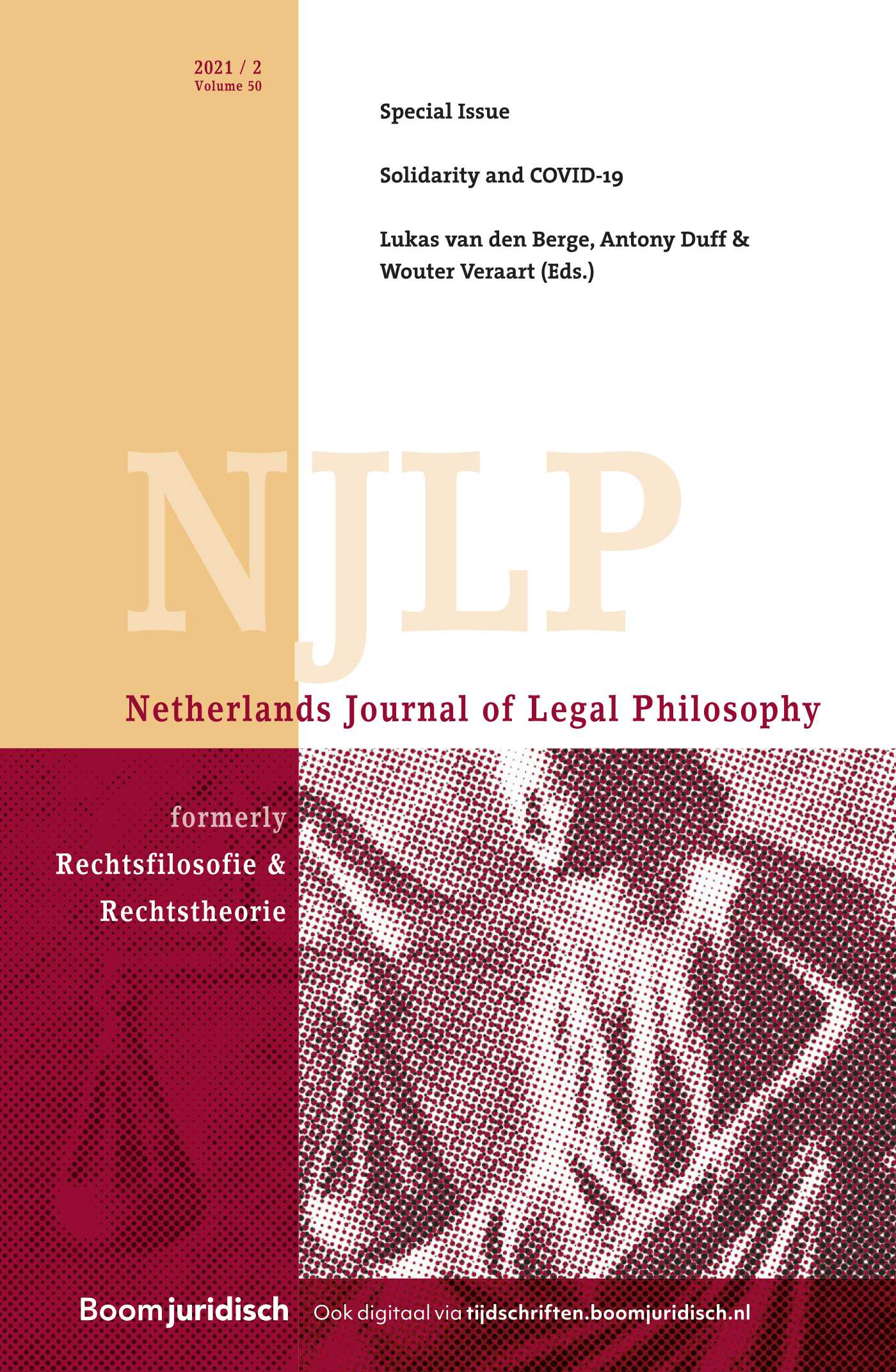|
In this paper, I suggest a discourse theory of basic legal rights that is superior to rival approaches, such as a will-based or an interest-based theory of rights. Basic rights are reciprocally and generally justifiable and binding claims on others (agents or institutions) that they should do (or refrain from doing) certain things determined by the content of these rights. We call these rights basic because they define the status of persons as full members of a normative order in such a way that they provide protection from severe forms of legal, political and social domination. The very ground of these rights is the status of persons as free and equal normative authorities within the order they are subject to. In other words, these rights are grounded in a fundamental moral right to justification. |


Netherlands Journal of Legal Philosophy
About this journalSubscribe to the email alerts for this journal here to receive notifications when a new issue is at your disposal.
| Editorial |
|
| Authors | Bertjan Wolthuis, Elaine Mak and Lisette ten Haaf |
| Author's information |
| Article |
|
| Keywords | Basic rights, Right to justification, Discourse theory, Non-domination, Kant |
| Authors | Rainer Forst |
| AbstractAuthor's information |
| Article |
|
| Keywords | Human dignity, Transcendental arguments, Discourse ethics, Kantian ethics, Human rights |
| Authors | Marcus Düwell |
| AbstractAuthor's information |
|
The paper discusses Forst’s discourse- theoretical adaption of the Kantian heritage. If Forst sees a Kantian concept of human dignity as the basis of his approach, he cannot rely on Habermas’ (quasi-)transcendental argument. It is furthermore questionable why Forst proposes that the content of human rights can only be determined in a procedural way. An alternative would be to determine the content from the normative starting point of human dignity. |
| Article |
|
| Authors | Stefan Rummens |
| AbstractAuthor's information |
|
This paper makes two comments on Rainer Forst’s keynote contribution. It argues, first, that three important distinctions introduced by Forst are, in fact, all different versions of the more primary distinction between the a priori reconstruction of basic rights by philosophers and the discursive construction of basic rights by citizens. It proposes, secondly, an alternative discourse-theoretical reconstruction which makes a distinction between the basic right to justification and the basic right to choose your own ends as two different but inseparable rights – two sides of the same coin – which jointly provide the moral ground for our basic rights as citizens. |
| Article |
|
| Keywords | Basic rights, Right to justification, Discourse theory, Considered judgements, Philosophical methodology |
| Authors | Laura Valentini |
| AbstractAuthor's information |
|
In his thought-provoking article, Rainer Forst develops a discourse-theoretical approach to the justification of basic rights, and argues that it is superior to interest-based and autonomy-based views. I cast doubt on the superiority of the discourse-theoretical approach. I suggest that, on reflection, the approach suffers from the same difficulties that Forst believes undermine rival views. My discussion raises broader questions about what desiderata a good justification of basic rights should satisfy. |
| Article |
|
| Keywords | Basic rights, Justification, Kant |
| Authors | Glen Newey |
| AbstractAuthor's information |
|
This paper responds to Rainer Forst’s article ‘The Justification of Basic Rights’. I argue that Forst's main thesis is difficult to pin down, partly because it is formulated in significantly distinct ways at numerous points. I offer a possible formulation of the argument but note that this encapsulates a fallacy; I further argue that his inference of the basic rights seems to imply an over-moralisation of social life and that his argument does not distinguish rights with discretionary and non-discretionary content. Then I query Forst’s claim that a right to justification is a condition of engaging in justificatory discourse. This leads to the conclusion that what goes into the process of justification, including who figures in the discursive community, are irreducibly political questions, whose answers cannot be convincingly specified antecedently by a form of moral legislation. I argue that actual discursive processes allow for considerably more contingency and contextual variability than Forst’s construction acknowledges. This extends, as I suggest in conclusion, to the idea that content can be specified via the Kantian notion that acceptability requires the ‘containment’ of an actor's ends by another, such as an affected party. |
| Article |
|
| Authors | Rainer Forst |
| AbstractAuthor's information |
|
In this paper, I reply to the four comments on my paper ‘The Justification of Basic Rights: A Discourse-Theoretical Approach’ given by Laura Valentini, Marcus Düwell, Stefan Rummens and Glen Newey. |

 Issue 3
Issue 3